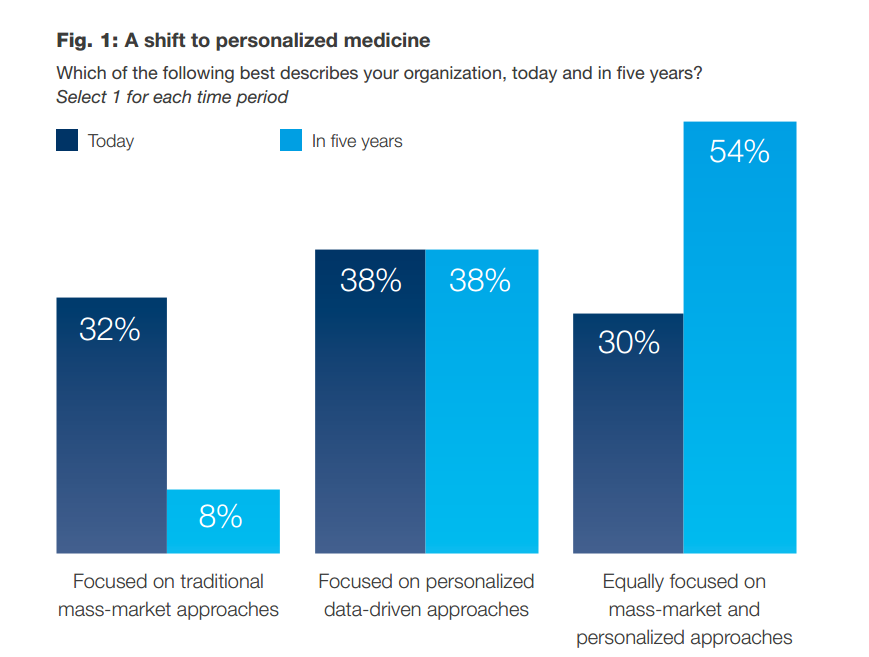
Over two-thirds of healthcare organizations say precision medicine is already having a measurable effect on patient outcomes, according to a new study from Oxford Economics and SAP. The research study includes a survey of 120 healthcare professionals from research, life sciences, and healthcare organizations in North America and Europe, along with in-depth interviews with experts in the field.
The report highlights what healthcare and pharmaceutical organizations are doing to accelerate the precision medicine revolution—and what they must do to foster progress. Precision medicine is transforming healthcare by using genetics, genomics, and big data to move beyond one-size-fits-all models of prevention, diagnosis, and treatment. This individualized care promises improved patient outcomes, cost savings, and greater efficiency across the healthcare system, but it also poses substantial challenges.
The traditional emphasis on mass-market approaches is shifting toward personalized medicine. The traditional model is not going away, and other movements (such as population health, which focuses on prevention at a community-wide scale) are also on the rise—but targeted approaches are increasingly ready for prime time.
The new US “moonshot” against cancer, announced by President Barack Obama in his January 2016 State of the Union address, will rely heavily on personalized medicine. The space-race imagery evokes an epic project and dramatic payoff to be realized all at once. But walking on the moon required years of basic engineering, incremental progress, and coordinated work. The same will be true of personalized medicine.
Among the key findings in the “Healthcare Gets Personal” report:
– Early results of personalized medicine initiatives are promising and aspirations are high – 68 percent of survey respondents say precision medicine is already having a measurable effect on patient outcomes, and over three-quarters expect it will have an impact on their organization in the next two years.
– Meaningful adjustments to culture and governance are required. Yet organizations are still learning to share data and interact with newly empowered patients, while preparation for regulatory changes remains a work in progress.
– Technology is at the heart of personalized medicine, and substantial investments are being made in big data and analytics. Building out IT capabilities is an essential next step.
Improving efficiency of care and lowering costs are the two leading forces driving the personalized medicine shift.
– Business models are not fully developed, but the economic case for personalized medicine is maturing; optimism abounds about revenue growth and profitability over the next two years.
Survey Background/Methodology
SAP worked with Oxford Economics to survey 120 healthcare professionals from organizations that have a meaningful focus on personalized medicine. Respondent included physicians, researchers, administrators, and executives—all have knowledge of and responsibility for their organization’s use of personalized medicine. Respondents come from eight countries in North America and Europe.
Organizations surveyed represent a range of revenue sizes and research budgets; the university research institutions included have sizable budgets devoted to personalized medicine. In general, organizations are expecting growth in revenue and profitability over the next two years—a possible sign that personalized medicine is turning into a financially viable market.
In addition to the quantitative survey, Oxford Economics also conducted a series of in-depth interviews with physicians, executives, and researchers from AstraZeneca, the Biobank Core Facility at St. Joseph’s Hospital and Barrow Neurological Institute, the George Washington University Cancer Center, Partners HealthCare, Einstein Medical Center, and the European Alliance for Personalized Medicine
